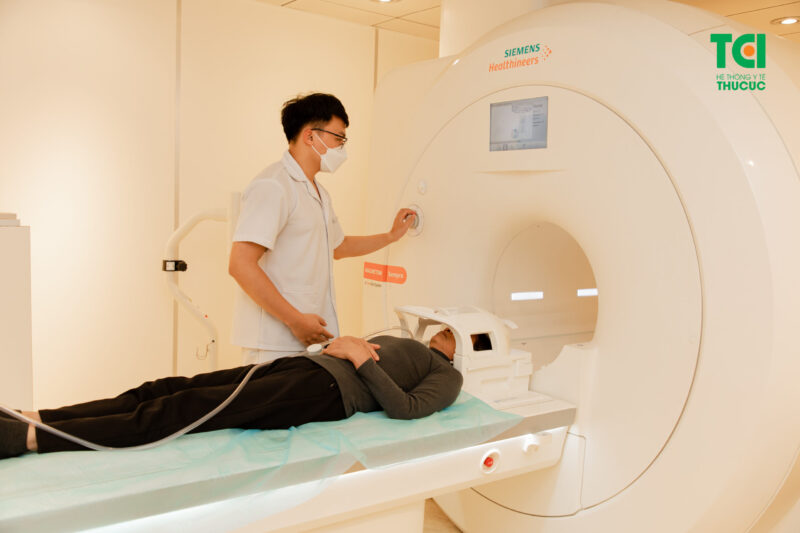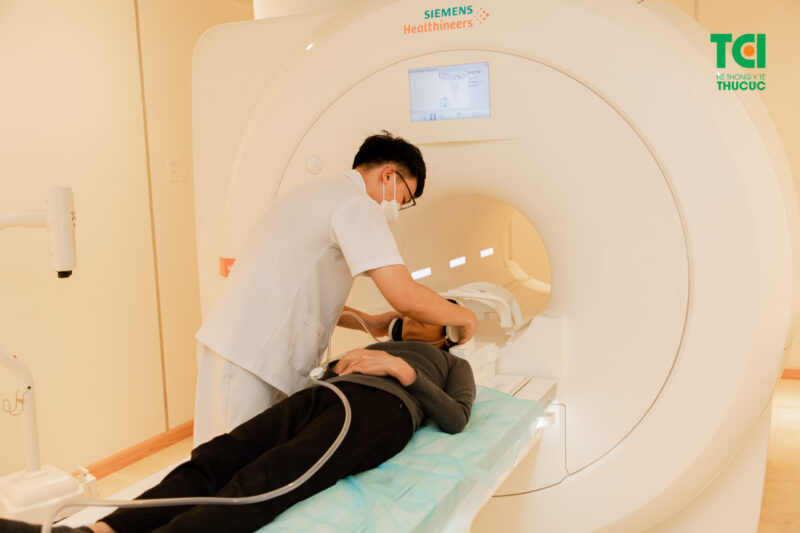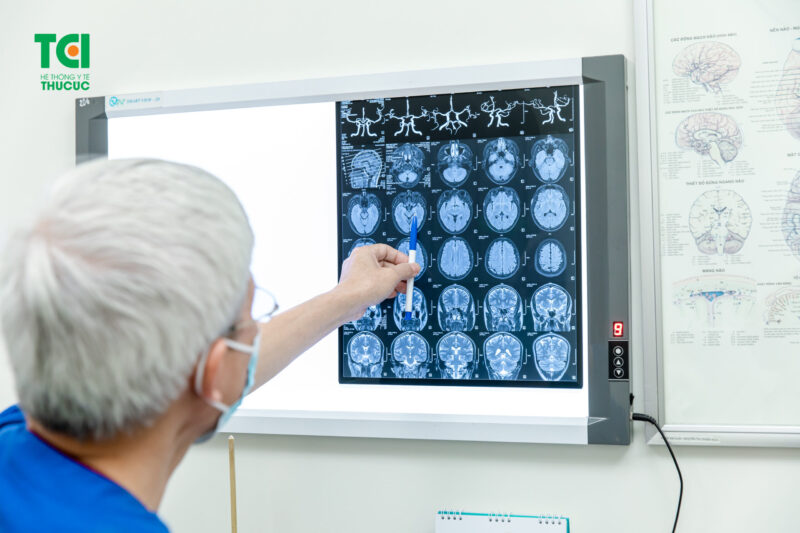Brain MRI is one of the most commonly prescribed techniques for examining abnormalities in the head and face regions. Through its results, doctors can identify the causes of diseases, the location of abnormalities, and determine appropriate treatment pathways.
1. What is Brain MRI?
Brain (Head) MRI (Magnetic resonance imaging) is a non-invasive and safe imaging diagnostic technique. An MRI machine creates images using magnetic fields and radio waves to reconstruct the entire structure of the head (such as brain tissue, blood vessels, and nerves) in 2D and 3D planes.
Compared to other imaging techniques like CT scans or X-rays, MRI provides higher quality, sharper, and more detailed images. Particularly, MRI exhibits higher sensitivity in distinguishing between diseased and normal tissue.
This method is also used to examine various body parts such as the brain, joints, chest, heart, lungs, and internal organs. Brain MRI plays a vital role in detecting and evaluating brain pathologies including:
– Identifying abnormalities in brain tissue such as tumors, brain cysts, meningeal tumors, infections, intracranial hematoma, and metastatic cancers.
– High specificity in detecting acute cerebral infarction, increasing the chances of complete treatment for patients with stroke.
– Evaluating cerebrovascular diseases such as aneurysms, vascular malformations, without the need for contrast agents, reducing the risk of allergic reactions and shock.
– Assessing small parts not observable through CT scans, X-rays, or ultrasound, such as evaluating pituitary gland diseases or brainstem.

Brain MRI plays a crucial role in detecting and evaluating brain pathologies.
2. Indications and Contraindications for Brain MRI
2.1. Indications for Brain MRI
Doctors recommend and prescribe MRI scans for cases presenting abnormalities in the body such as:
– Sleep disorders: Insomnia, shallow sleep, difficulty falling asleep, frequent waking at night.
– Prolonged unexplained dizziness.
– Headaches (including migraines) occur regularly at different intensities.
– Memory impairment, poor concentration, reduced cognitive abilities.
– Limb weakness or paralysis, causing difficulties in grasping or movement.
– Visual impairment or pain in one eye.
Several pathological conditions necessitate MRI scans for accurate diagnosis and appropriate treatment:
– Cerebral hemorrhage, ischemia, or stroke.
– Meningitis.
– Cerebrovascular diseases, vascular malformations, nerve-vascular conflicts.
– Traumatic brain injury.
– Brain or spinal cord tumors.
2.2. Contraindications for Brain MRI
Although MRI is a safe imaging modality, certain conditions contraindicate its use:
– Presence of implanted electronic devices.
– Previous interventions or implanted materials such as blood vessel stents, blood vessel clips, or coil embolization devices.
– Metallic objects in the body that may shift during scanning, causing harm to the patient.
– Pregnant women in the first 12 weeks of gestation.
– Dentures or dental braces.
– Tattoos on the body that may heat up or cause discomfort during scanning due to metal content.
– Patients with claustrophobia, young children, or those who are uncooperative or restless.

Patients experiencing abnormalities in the brain region will be examined and advised to undergo an MRI scan.
3. Advantages and Limitations of Brain MRI
3.1. Advantages
Brain MRI offers several notable advantages:
– MRI does not involve radiation exposure, ensuring high safety and minimal impact on the patient’s health. It can be performed on both children and pregnant women.
– Detailed and clear images of brain abnormalities, especially tumors, can be obtained without the need for contrast agents.
– MRI is non-invasive yet provides high-quality images with sharpness, facilitating early detection and assessment of skull abnormalities.
– Functional evaluation of the brain, sensory areas, motor areas, detection of abnormal tumors, metabolic disorders, etc.
3.2. Limitations
Despite its advantages, head MRI still has some limitations:
– MRI typically takes longer compared to other methods, lasting approximately 15-25 minutes.
– The scanning process generates loud noises, which may cause discomfort to sensitive individuals.
– Inapplicable to patients with metal implants, cardiac pacemakers, or metallic foreign bodies in the body.

The MRI findings of abnormalities in the brain will assist the doctor in formulating an appropriate treatment plan.
Brain MRI is a modern and advanced imaging diagnostic method that requires high-quality equipment and expertise. Therefore, it’s essential to choose a reputable and high-quality facility for accurate diagnosis and timely treatment.
We hope this article has provided essential information to help you better understand brain MRI. Please ensure to select a reputable and high-quality healthcare facility for early detection and treatment of abnormalities.








